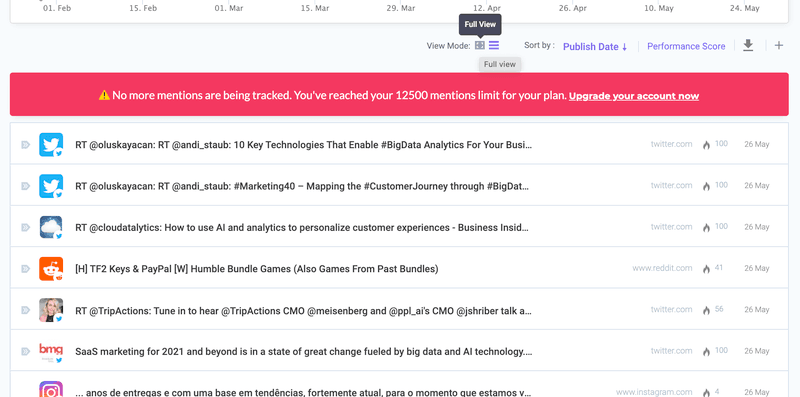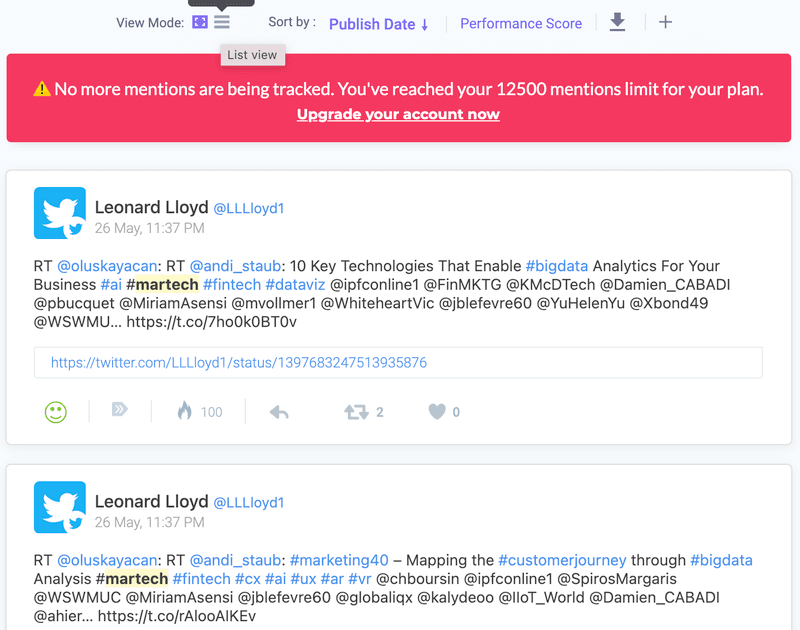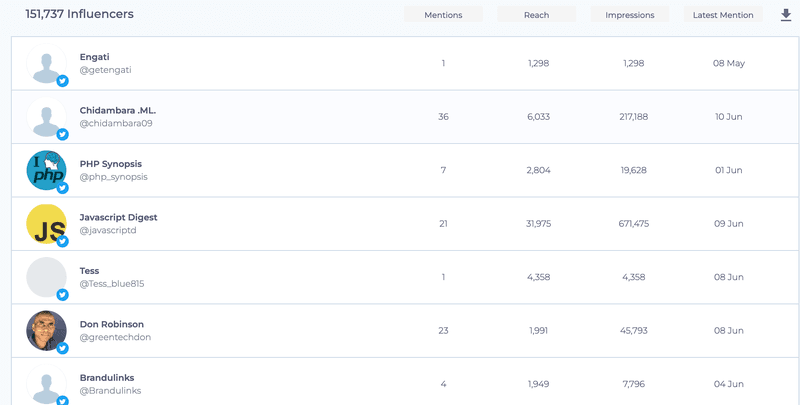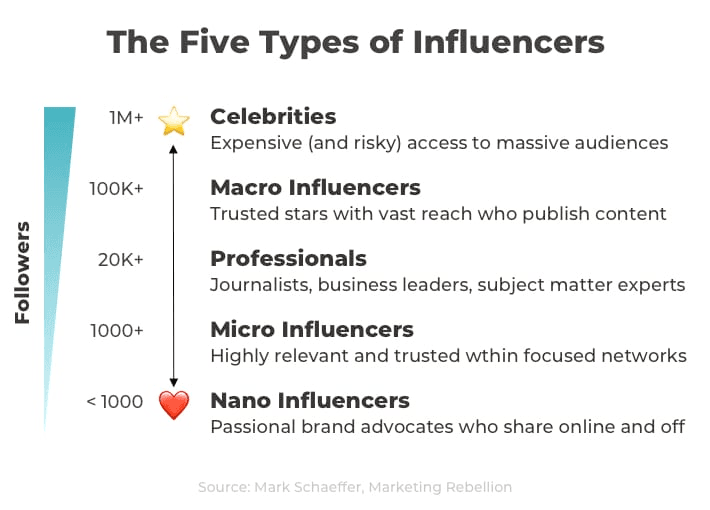What exactly is brand monitoring, and why is it so vital to businesses today? When we talk about SEO, we cannot miss backlinks which is the most important SEO metric.
Backlinks are an essential component of search engine optimization (SEO) because they demonstrate to Google that your content is regarded as valuable enough by another resource for them to link to it within their content. When a website receives more backlinks, search engines infer from this fact that the website contains useful content worthy of a high ranking on the search engine results pages (SERPs). And all of the above represent the reputation of a brand. One step forward, we need a tool for Brand Monitoring.
Maintaining the health of your company and ensuring its continued existence requires you to maintain a close eye on how the general public views your brand. There are more ways than ever before for your audience to talk about you. Still, luckily, it's never been easier to track your brand mentions through online brand monitoring and have a comprehensive understanding of how people feel about your brand. One of the ways that your audience can talk about you is through the use of social media platforms.

Monitoring your brand entails keeping an eye on various media outlets in search of instances in which your company or product is mentioned. If you are aware of where people are talking about your brand and how they are doing so, you will have a better understanding of how people view it, and you will be able to collect valuable feedback from your audience. You can also keep an eye out for potential crises and respond to questions or criticism before the situation spirals out of your control.
Unlike social monitoring, which focuses solely on your brand's social media coverage, brand monitoring encompasses social media as well as everywhere else people are discussing your brand. Brand monitoring combines social monitoring and social listening with techniques for tracking brand mentions on non-social media channels in order to gather audience intelligence.
Reputation of a brand refers to the general opinion that people have of that brand, which might be an individual or an organization. A strong brand reputation demonstrates that consumers have confidence in your product or service and that they are willing to do business with you because of this trust.
Consumers are able to share their experiences with various businesses and engage in in-depth reflection on those experiences through the utilization of social networks, review websites, and online discussion forums.
A brand becomes easily available to other customers and the target market by way of the experiences of its particular consumers, so benefiting those customers and the target market in the process of making decisions. This experience may take place before the items or services are purchased, in the course of the buying process, or after the transaction has been completed.
Some individuals even considered the after-sale support provided by the firms to be an important aspect of the overall purchase experience they had. That gives a high-level overview of what brand reputation is, but why is it so crucial to maintain one?
The collecting of consumers' impressions of brands enables more individuals to learn, decide whether to purchase, and evaluate alternatives on the market.
Insofar as brand reputations serve as a source of information for both customers and companies, the importance of brand strength is helpful to brand owners. Here are numerous factors for establishing and sustaining a positive brand reputation:
Reputation for a brand is cultivated by the responses and experiences of customers who choose a product or service.
The consumer feedback is used not only for the company's reputation, but also as a reference for future marketing campaigns and tactics.
Achieving client happiness is crucial to a company's long-term viability and income generation.
The word-of-mouth referrals are what convinces other potential customers to choose the brand and form a favorable impression of the brand.
As soon as the brand promoted to the public, the related organizations should brace themselves with the incoming comments; both favorable and bad.
As this occurs, preventative actions should be well-planned in order to immediately neutralize any potential problems.
Negative emotions are harmful because they may rapidly spread like wildfire and inflict substantial harm to the brand.
It is essential to utilize social media and designate a competent support personnel to administer the platform in order to maintain a cordial and respectful response to client concerns.
This is another indirect technique to develop a strong company reputation: ensuring that customer circles are positive and delivering amazing voices and experiences online.
As they are the mirror of the brand, this also invites more influencers to comment and the community to learn more about the company.
It is essential for a company to take the opinions of the consumers it serves into consideration. This provides you with a knowledge of the overall attitude that is around your brand and goods, even if you don't agree with some of the conversations that you see revolving around your company. The way in which you are seen by the public and how you react to comments and suggestions from the public may play a significant impact in the expansion of your brand.
In point of fact, according to the results of a recent survey that we conducted with 500 corporate leaders, 82% are presently using social media as a source of data and insights to inform the business choices that are made inside their firm.
The following are some of the ways in which brand monitoring might have an effect on your company's operations:
Monitoring your brand's reputation may assist you in gaining a more comprehensive understanding of how people feel about your company as a whole. A sentiment analysis examines the precise language that is used in comments about your brand and is able to tell you whether people are speaking about your brand with a positive, negative, or neutral sentiment. [Case in point:] [Case in point:] [Case in point:] [
This is an excellent method for reading between the lines and observing, on a large scale, how people are reacting to particular posts, campaigns, or your brand in general. You may have access to a comprehensive sentiment analysis by using monitoring solutions such as Sprout Social. The social listening tools provided by Sprout examine all of the comments and mentions made in relation to your posts and then compile a sentiment summary that reveals how your audience feels about your brand.
Monitoring your brand may assist you in maintaining control of your reputation and addressing concerns raised by customers before they spiral out of your hands. Audiences' trust in your brand can be increased when you demonstrate that you actually care about what customers are saying by doing things like listening to reviews and feedback online and having a process for responding to and handling issues raised by those reviews and feedback.
In addition to keeping an eye on the reputation of your company, it is essential to be on the lookout for prospective comments that might point you in the direction of the enhancements that are required for your product or service. Be sure to have a solid procedure in place before you begin collecting input from your target demographic, though. It is equally as crucial to have a mechanism in place to transmit the feedback that you get online to the appropriate teams within your business so that they can make the necessary adjustments and improvements.
Knowing where people are discussing your brand makes it much simpler to reply. Responding publicly to reviews or comments demonstrates to your audience that you are actively paying attention to what they have to say.
Additionally, it demonstrates that you are ready to answer queries and assist consumers. When you skip the opportunity to reply to online queries or criticism, it may look that your brand is unreachable or uninterested in receiving input.
User-generated content may be an excellent addition to your content strategy. By tracking brand mentions, you can determine who is posting brand-related content. This is also a terrific approach to locate new influencers to collaborate with who are real brand advocates and to find fresh material for your social media platforms.
It is tempting, while monitoring your brand, to watch every mention of your brand anywhere people could be discussing it. However, it is crucial to be deliberate about what you are monitoring and the channels you pick to observe. This saves you from collecting an excessive quantity of data from which it is difficult to draw conclusions and helps you obtain clearer findings.
Among the primary channels to monitor:
In addition to monitoring the appropriate channels, you should monitor any brand aspects that may gain exposure. Choose aspects that are pertinent to your brand and industry when determining which to track. Consider monitoring the following brand components in conversations that reference your company.
Create a list of all the terms people use to describe your brand. This might include nicknames, blog names, and other word variants linked with your business. It is essential to keep track of all the alternative spellings and abbreviations of your name that you are aware of. You may find variants and even frequent misspellings by conducting keyword research via mention monitoring tool on the queries your brand's online presence receives.
In addition to tracking variants of your brand name, it is also a good idea to monitor variations of your campaigns and product names in the event that you receive media or comments pertaining to these specific facets of your brand. Even if your audience does not specifically mention brand accounts, you will be able to keep up with the discourse surrounding your brand.
It is beneficial to know what your competitors are doing and what their audience is discussing in order to stay abreast of the latest industry news. You can analyze your competitors to establish a benchmark for evaluating how your brand compares to others in the same industry.
Numerous online brand monitoring tools permit you to compare your social media activity to that of your competitors. Sprout's report on competitors enables you to track how your performance evolves over time by comparing your presence to that of competitors across all platforms.
Keeping track of your metrics over time and the information you gather through brand monitoring will allow you to observe how factors such as recent developments in the industry and alterations made to your content strategy affect the expansion and engagement of your audience.

Monitoring your brand can also help you understand the impact of specific strategies and tactics that you've incorporated into your larger marketing strategy, such as influencer partnerships and marketing campaigns. You'll be able to determine what kinds of campaigns and response efforts were successful and which ones failed to connect with your audience if you've used hashtags for those efforts or tagged your posts in Sprout. You can bucket and track these posts.
If you work in a specialized field, it's important to stay abreast of any new fashions or buzzwords that emerge in your area. Even if these discussions do not specifically bring up your company or product, it is still beneficial to be knowledgeable about what is being said about your sector as a whole. This may also be a terrific source of inspiration for new content ideas or novel ways to participate in the debate.
By participating in conversations that aren't solely focused on providing customer service or addressing complaints, your company can demonstrate that it is active in the industry as a whole and is just as engaged in the most recent news or trends as the dedicated audience that makes up your niche.

You should also keep track of any public figures or spokespeople who are mentioned in connection with your brand or a particular campaign. Be sure that you are keeping track of the conversations that are taking place around your CEO as well as any other prominent figures that are associated with your brand. Even if the news surrounding the individual is not directly related to business operations, the way in which someone working for your company is portrayed in the media can have an effect on how consumers view your brand as a whole.


Monitoring your brand might make it simpler to ascertain how individuals feel about your product or service. This information may guide the marketing decisions you make and assist you in developing campaigns that will be well-received by your target demographic. If you can identify critical remarks, you will be in a better position to provide support and replies, as well as to exert more control over the message that is being sent. The more you monitor, the more you'll learn about your business sector and how your brand compares to that of your rivals in the market.
Check out our knowledge base as well as our blogs if you want to learn even more about the ways in which customers want to interact with brands and the ways in which you can find untapped potential in your marketing campaigns.